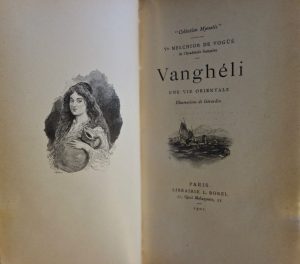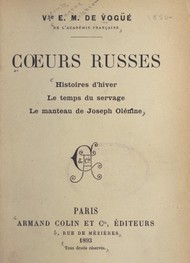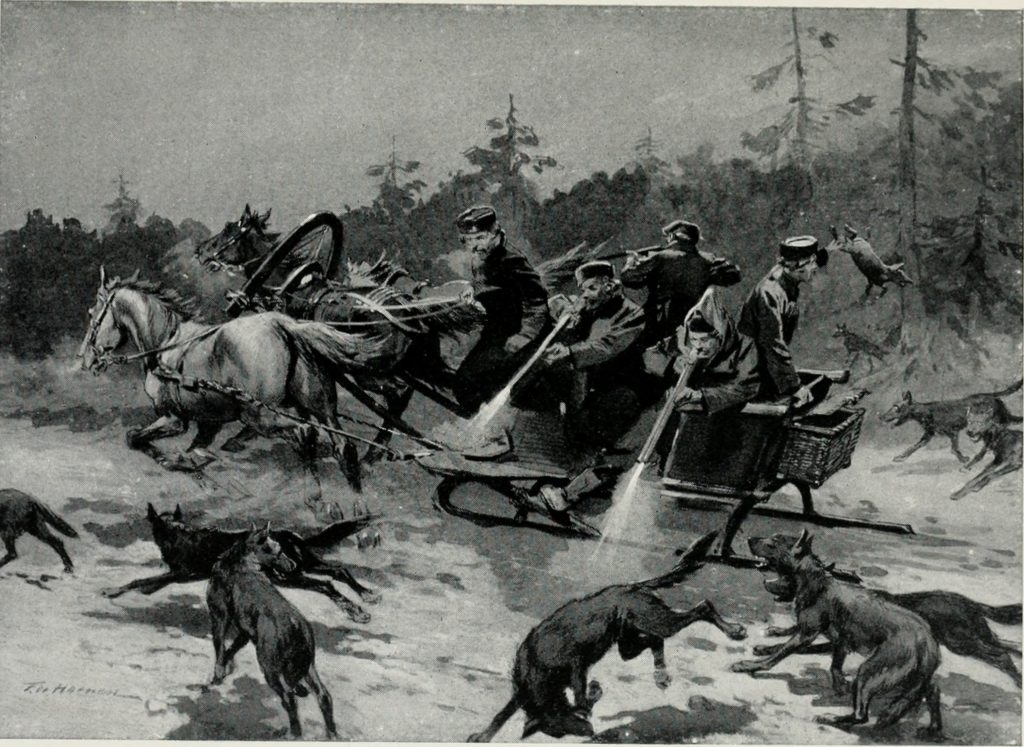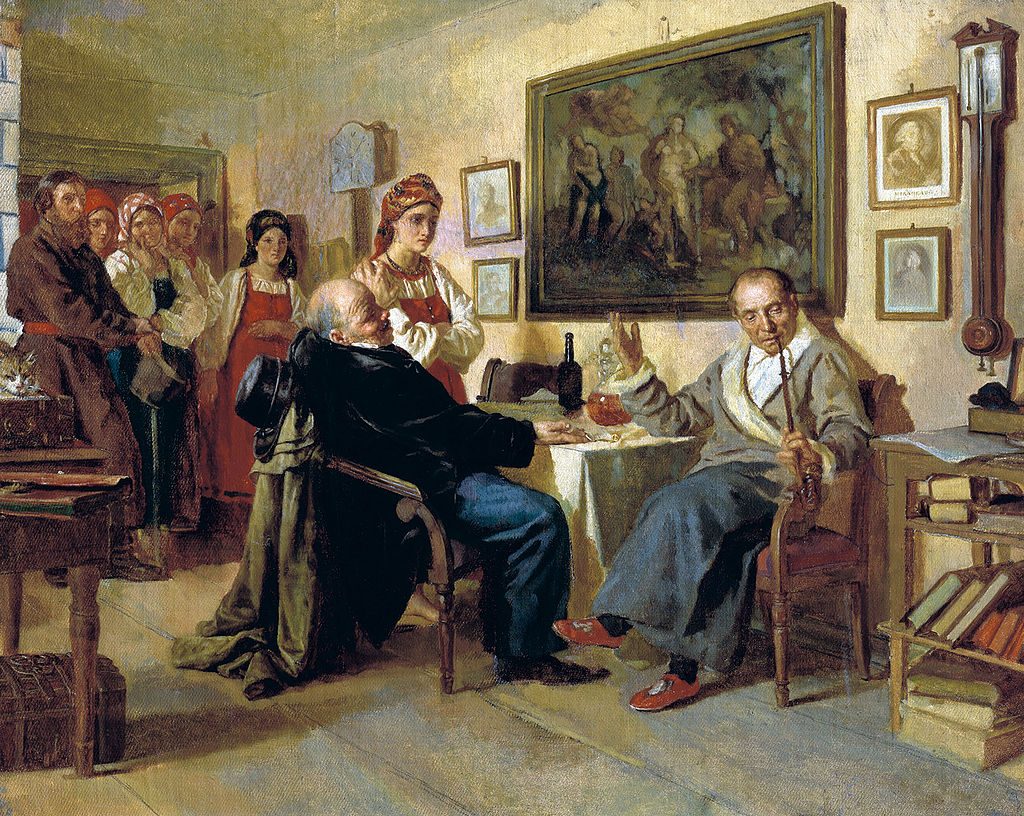For the past eight years I’ve been translating the writings of a small handful of French authors, and I’ve come to know them quite well.
On my ‘Translated Short Stories’ page (see above) there’s a list of titles mostly from 19th-century metropolitan France, with a few from 21st-century New Caledonia. I took a look at the groupings under author names, and realised that readers might like to know more about each individual writer. So, here I go: today I’m starting with Eugène-Melchior de Vogüé.
It’s been many years since I first translated his stories, yet I still enjoy them today. He’s an author whose books have sat, ignored, on shelves in bookshops and libraries, but they ought not to be collecting dust; they deserve to be read. His writing has taught me much about Russian and Middle-Eastern history that influences the way I hear today’s news from those parts of the world. In his fiction, de Vogüé makes me aware of what has changed, and what, unfortunately, hasn’t.

A brief bio: Eugène-Melchior de Vogüé was a viscount born in 1848 in Nice; he died in Paris in 1910. His father belonged to one of the oldest French noble families; his mother was Scottish. In his day Eugène-Melchior was famous for bringing the literature of Russian writers to French readers in his 1886 book, Le Roman russe (The Russian Novel). His introduction of Pushkin, Gogol, Dostoevsky, Turgenev and Tolstoy revealed to new readers the intellectual and spiritual richness of the Russian soul.
His love for Russian writing developed during his appointment as a French diplomat to St Petersburg from 1877 – 1882, and his interest really bloomed with his marriage to a Russian aristocrat in 1878, and with later time spent in Ukraine.
Previously he’d had diplomatic postings to Constantinople and Egypt and had written accounts of his experience there in various Oriental tales. ‘Syrie, Palestine, Mont-Athos’ and ‘Vanghéli’ were just two.

But once he’d fallen in love with a Russian and Russia, de Vogüé developed a desire to help France, to save her from literary, political and spiritual crises. This desire is a thread running through all his writing. He believed his country could be saved by adopting the sentiments found in Russian orthodoxy, such as sympathy and love.

In 1884 he began publishing short stories set in Russia and Ukraine, in a style influenced by Turgenev. One I’ve translated and published, ‘Histoires d’hiver’ or ‘Winter Tales’ is a long short story that appears at the beginning of the collection, Cœurs russes (Russian Hearts). It’s a nest of short tales told to the narrator during his visit to a friend, Michaïl Dmitrich P— , a landowner who has invited him on a wolf hunt in provincial Russia.

The hunt being unsuccessful that day, the two men return to the house and engage in a dialogue on the situation of peasants and former serfs now that serfdom has been abolished. Michaïl Dmitrich P— has recently retired on his inherited provincial property, where he “dabbled a little in agronomy with no great illusions about the results of such a pastime.”

Let me give you a taste of de Vogüé’s writing in this excerpt introducing Monsieur P—, a landowner and former serf owner:
He devoted himself to the study of economic questions, that is, he mulled them over, smoking his pipe and discussing them for entire evenings with the Maréchal de Noblesse or the justice of the peace. The first being a ferocious reactionary and the second a confirmed red, Mikhail Dmitrich had for each problem an authoritative solution and a liberal solution which prevailed by turns in his mind, depending on who had spoken to him the day before. When he was too troubled by the contradictions of social problems, Monsieur P— would read over a chapter from Kant or the ‘Introduction to Negative Synthesis’ by Professor Verblioudovich. His mind if I may say found a digestive aid in these readings, a mixture of something both soothing and lightly stimulating, of the kind an after‑dinner cigar provides. His intelligence enjoyed these vapours of thought as his body enjoyed the vapours of the Russian bath, in the lukewarm atmosphere which is neither water nor air, but a soft fog.
You can find this little ebook or paperback, ‘Winter Tales’ , at Amazon.
If you’d like a free taste of de Vogüé, my translation of his story, ‘Joseph Olenin’s Coat’ is available online at Bewildering Stories where you can read about a lonely man in a cold and isolated part of Ukraine, who loses a coat, finds one, and falls in love with it.
*
To finish my praise of Monsieur de Vogüé, I must mention a new book by a French researcher, Anna Gichkina, just published in 2018: Eugène-Melchior de Vogüé ou comment la Russie pourrait sauver la France. (E-M de V or How Russia could save France). It’s on my To Read list.
*

![Winter Tales by [de Vogüé, Eugène-Melchior]](https://images-na.ssl-images-amazon.com/images/I/51TY38aUGhL.jpg)